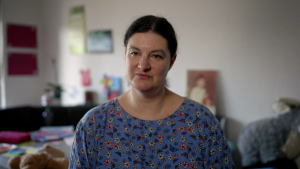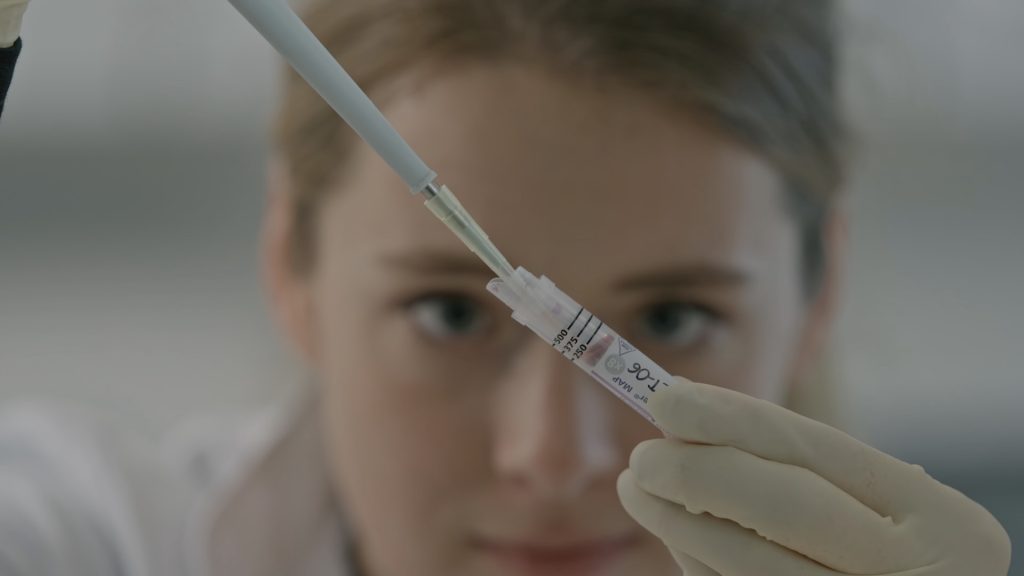

Our documentary film "The power of the cycle - new research, old taboos"
will be broadcasted on Saturday, 17 February 2024 at 21:50 on ARTE.
The documentary is available until 15.05.2024 in the ARTE-Mediathek and on YouTube .
The menstrual cycle is being rediscovered: by researchers, but also by women themselves.
To this day, millions of women around the world lose quality of life and performance potential because the cyclical nature of menstruating people is still stigmatized. Even in the scientific community, little is known about the menstrual cycle, apart from some highly schematic observations and isolated findings in certain areas. But this is now increasingly changing.
"I imagine a world in which every female athlete really does have a normal cycle, that every female athlete has trainers who enable and carry out cycle-based training," says sports medicine specialist Professor Dr. Petra Platen.
But this is still a dream of the future, as menstruation has so far been a taboo in elite sports. With a pilot project by the German Athletics Association and the Faculty of Sports Science at Ruhr University Bochum, Professor Petra Platen now wants to open a new chapter in competitive sport: the hormonal influence on the performance of female athletes is being investigated in order to be able to use the strengthening power of the menstrual cycle. The film "The Power of the Cycle - New Research, Old Taboos" follows sports physician Petra Platen as she uses cycle-based training to reduce the risk of injury among top female athletes.
Just how little research has been done into the menstrual cycle becomes clear in an interview with evolutionary biologist Christian Feregrino from the Max Delbrück Center for Molecular Medicine.
"We know that there are about 5500 species of mammals and only about 80 primates. So humans and monkeys, four bat species and now this spiny mouse. So there are very, very few. Only about one percent of mammal species menstruate," explains the evolutionary biologist "When I talk to people about it, they are always surprised. They say: Oh, I thought all mammals menstruated."
The scientists at the Max Dellbrück Center hope to gain more knowledge about diseases such as endometriosis through research into the evolution of the menstrual cycle.
Gynaecologist Petra Frank-Herrmann at Heidelberg University Hospital knows that more precise knowledge of the menstrual cycle can also help couples who want to have children and save them costly and unhealthy treatments. She and her colleagues have created the world's largest database on the female cycle. And found out: The assumption that a cycle lasts 28 days is not tenable and far too schematic.
More knowledge about the menstrual cycle and their own body can help women to use natural contraception instead - without hormones: Katharina, Valériane and Deborah learn how to read the signals of their own menstrual cycle with this new awareness of their body in a workshop on natural family planning.
Millions of women menstruate every day and yet in many cultures menstrual blood is considered dirty, something that many women are ashamed of. Yet it is precisely this blood that contains a treasure, explains Dr. Ping Shen from the German Rheumatism Research Institute. A treasure that promises to cure, or at least alleviate, widespread diseases such as osteoarthritis in the future.
Authors: Maja Meiners/ Heinke Schröder
Film edit: Vanessa Wagner
Camera: Andrea Rumpler u.a.
Music: Sascha Blank
Producer: Tatjana Mischke
Editorial: Linde Dehner (ZDF)
Production: Valentin Thurn
A production by Thurnfilm
On behalf of ZDF
THURN FILM, an independent production company for documentary films,
was founded in 2003 by Valentin Thurn.
ThurnFilm GmbH
Neven-DuMont-Straße 14
50667 Köln
Tel.: +49 221 25 89 01 90
Produktion@ThurnFilm.de
ThurnFilm GmbH
Senefelderstrasse 77a
70176 Stuttgart